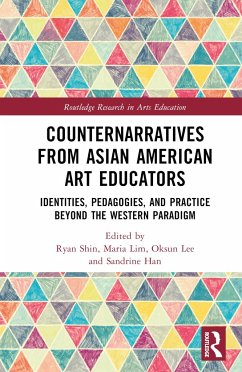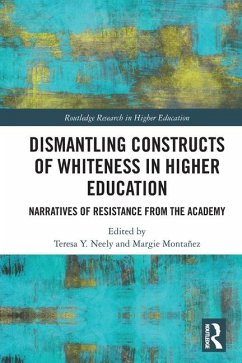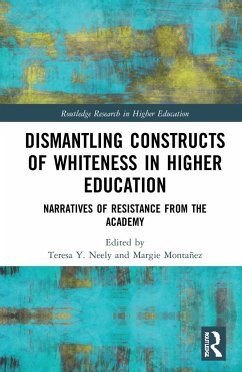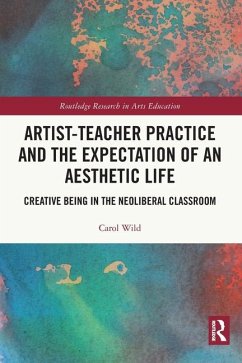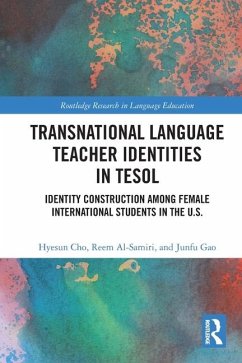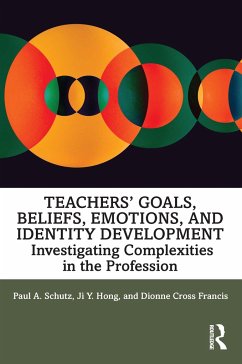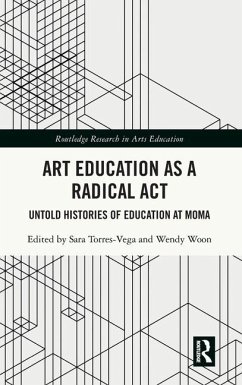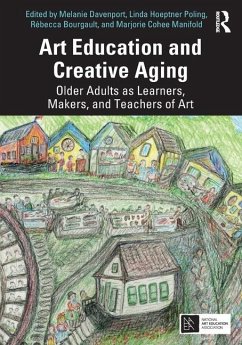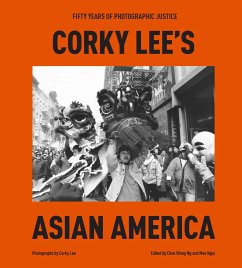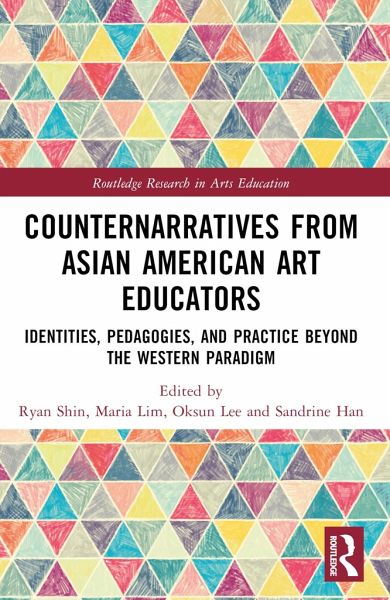
Counternarratives from Asian American Art Educators
Identities, Pedagogies, and Practice beyond the Western Paradigm
Herausgegeben: Shin, Ryan; Lim, Maria; Lee, Oksun; Han, Sandrine
Versandkostenfrei!
Versandfertig in 6-10 Tagen
43,99 €
inkl. MwSt.
Weitere Ausgaben:

PAYBACK Punkte
22 °P sammeln!
Counternarratives from Asian American Art Educators: Identities, Pedagogies, and Practice beyond the Western Paradigm collects and explores the professional and pedagogical narratives of Asian art educators and researchers in North America. Few studies published since the substantial immigration of Asian art educators to the United States in the 1990s have addressed their professional identities in higher education, K-12, and museum contexts. By foregrounding narratives from Asian American arts educators within these settings, this edited volume enacts a critical shift from Western, Eurocentri...
Counternarratives from Asian American Art Educators: Identities, Pedagogies, and Practice beyond the Western Paradigm collects and explores the professional and pedagogical narratives of Asian art educators and researchers in North America. Few studies published since the substantial immigration of Asian art educators to the United States in the 1990s have addressed their professional identities in higher education, K-12, and museum contexts. By foregrounding narratives from Asian American arts educators within these settings, this edited volume enacts a critical shift from Western, Eurocentric perspectives to the unique contributions of Asian American practitioners.
Enhanced by the application of the AsianCrit framework and theories of intersectionality, positionality, decolonization, and allyship, these original contributor counternarratives focus on professional and pedagogical discourses and practices that support Asian American identity development and practice. Asignificant contribution to the field of art education, this book highlights the voices and experiences of Asian art educators and serves as an ideal scholarly resource for exploring their identity formation, construction, and development of a historically underrepresented minoritized group in North America.
Enhanced by the application of the AsianCrit framework and theories of intersectionality, positionality, decolonization, and allyship, these original contributor counternarratives focus on professional and pedagogical discourses and practices that support Asian American identity development and practice. Asignificant contribution to the field of art education, this book highlights the voices and experiences of Asian art educators and serves as an ideal scholarly resource for exploring their identity formation, construction, and development of a historically underrepresented minoritized group in North America.





